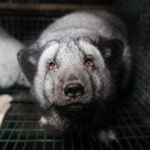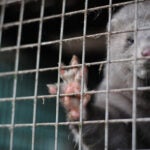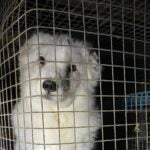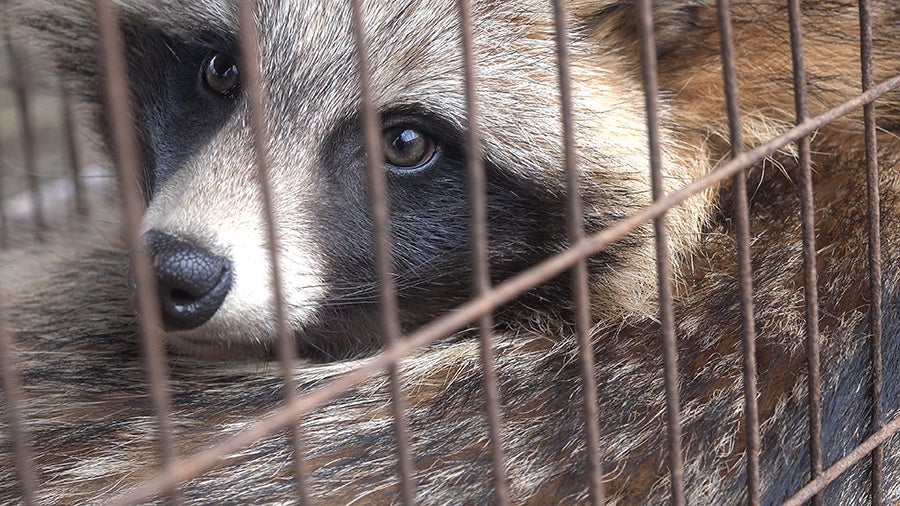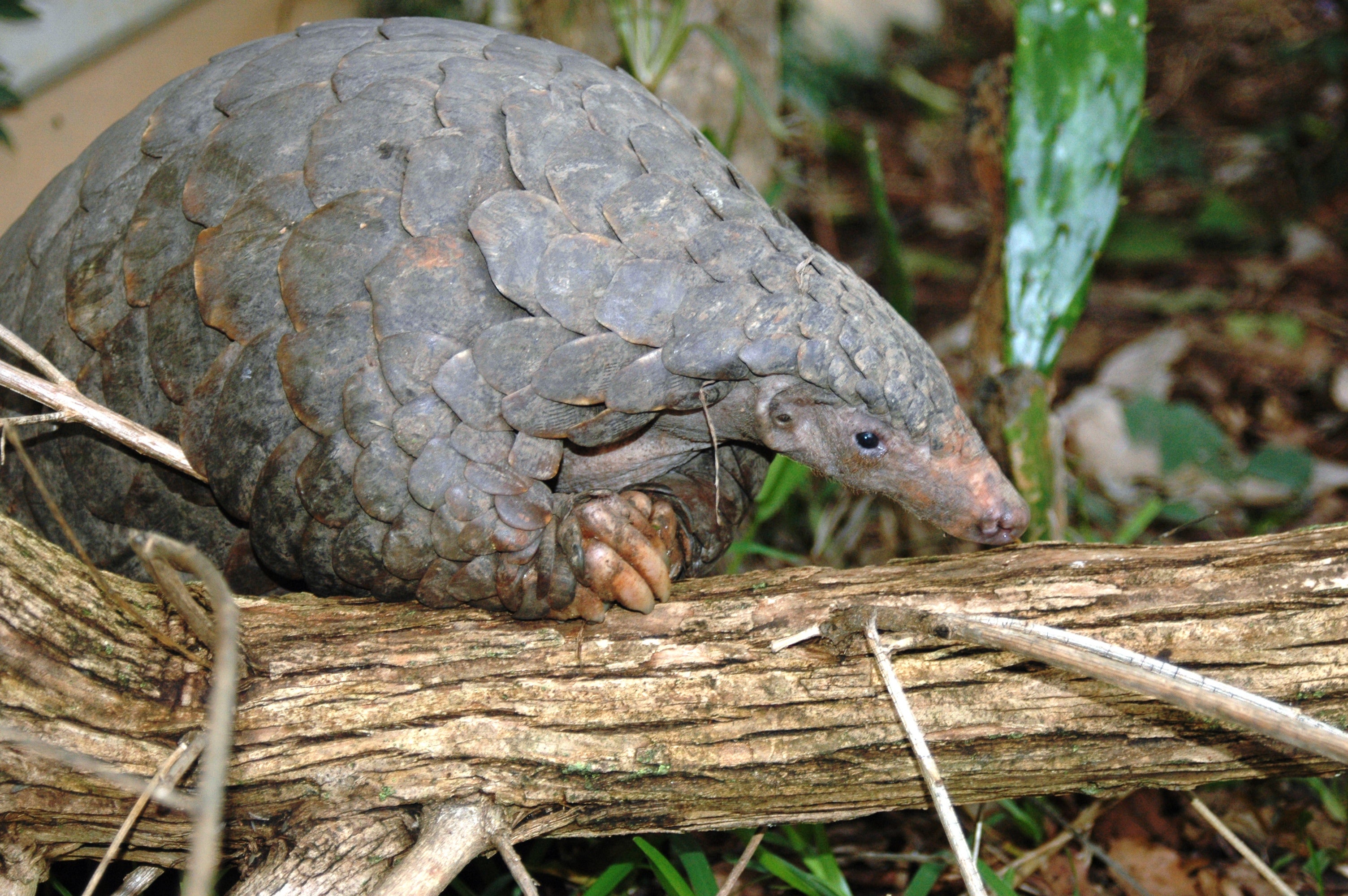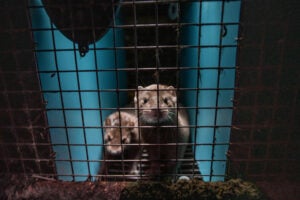
BRUSSELS―In an article published in the scientific journal Proceedings of the National Academy of Sciences, virologists Dr Thomas Peacock and Professor Wendy Barclay of Imperial College London have issued a stern warning regarding the risks fur farming poses for future disease outbreaks. The concerns have intensified due to recent avian flu outbreaks on mink and fox fur farms in Spain and Finland, sparking increasing fears that fur farms can act as breeding grounds for zoonotic diseases. Responding to this alarming development, leading animal protection organisation Humane Society International/Europe urges the European Commission to act fast to introduce a ban on fur farming and imports throughout the EU.
Fur farming has faced significant restrictions and outright bans across Europe, with a total of 19 countries, including 14 EU Member States, taking a stand against this controversial industry. Despite these advancements, millions of animals, including mink, fox, raccoon dog and chinchilla continue to be bred for their fur in EU countries, such as Finland, Poland, Greece, Spain, Romania and Sweden.
In the PNAS article, Dr Peacock and Professor Barclay write that “fur farming takes place in a high-density animal environment that allows for rapid spread of viruses with pandemic potential—and for virus adaptation to animals that would be unlikely to occur in nature.” Reports in Science and Nature have raised fears that the avian flu virus could be demonstrating the potential to mutate and spread mammal-to-mammal, which in turn increases concerns of a future pandemic. Peacock was quoted saying that the outbreak is “incredibly concerning” and “a clear mechanism for an H5 pandemic to start.”
Peacock and Barclay go on to say in the PNAS article: “We strongly urge governments to also consider the mounting evidence suggesting that fur farming, particularly mink, be eliminated in the interest of pandemic preparedness. Fur farming should be in the same category of high-risk practices as the bushmeat trade and live animal markets. These activities all increase the likelihood of future pandemics.”
Dr Joanna Swabe, senior director of public affairs at Humane Society International/Europe, said: “It is completely unacceptable that millions of animals continue to suffer terribly for fur fashion across Europe, and this is compounded by the equally outrageous fact that their exploitation poses a very serious threat to the health of EU and global citizens. As the outbreaks of COVID-19 and avian influenza on fur farms have amply shown, factory farming mammals in small wire cage conditions is simply unsustainable from an animal welfare and pandemic prevention viewpoint. We’re essentially putting public health at risk for cruel products that no one needs. With the EU Commission due to deliver its proposals to revise EU animal welfare legislation, now is the perfect time to relegate the cruel and dangerous fur trade to the annals of history.”
Earlier this year, an EU-wide “Fur-Free Europe” European Citizens’ Initiative petition calling on the European Commission to ban the farming and sale of fur in the EU, gathered 1.5 million validated signatures in under ten months. The Commission now has until December 14 this year to formally respond to this ECI and outline the actions it intends to take with regard to fur farming in the EU. As the European Commission prepares to deliver later this year legislative proposals to revise and expand the scope of the existing animal welfare legislation, a coalition of more than 70 European animal groups, including Humane Society International/Europe, is calling for that revision to include an EU-wide ban on fur farming and trade.
Notes:
- Mink and foxes tested positive this month for highly pathogenic avian influenza H5N1 on 10 fur farms in Finland, with more farms under suspicion for the virus and awaiting test results. In October last year, the first recorded outbreak of avian flu on a fur farm took place on a Spanish mink fur farm intensively breeding 52,000 mink, reigniting calls for an end to global fur farming.Since April 2020, mink on 487 fur farms across North America and Europe have been reported as having tested positive for SARS-CoV-2. The virus has been shown to pass from mammal to mammal on intensive mink fur farms and reports of farmed mink to human transfer has been reported in at least six countries. The most recent outbreaks were recorded in Poland in March 2023 and in Italy in April 2023.
- Fur farming is already banned in many European countries, including Austria, Belgium, Bosnia-Herzegovina, Czech Republic, Croatia, Estonia, France, Ireland, Italy, Latvia, Luxembourg, North Macedonia, Malta, the Netherlands, Norway, Serbia, Slovakia, Slovenia and the United Kingdom. Lithuania, Poland and Romania are currently considering fur farming bans.
- In June 2023, Austria, Germany and the Netherlands tabled an information note on fur farming, which was co-signed by the Belgian, Czech, Estonian, Lithuanian, Luxembourg and Slovak delgations, for discussion at the AGRIFISH Council. During the debate, 18 Member States voiced their support for a full ban on fur farming in the EU.
Media contact: Cassie Bodin-Duval, international coordinator for media relations: cbodinduval@hsi.org ; +32 (0) 469 149 469

